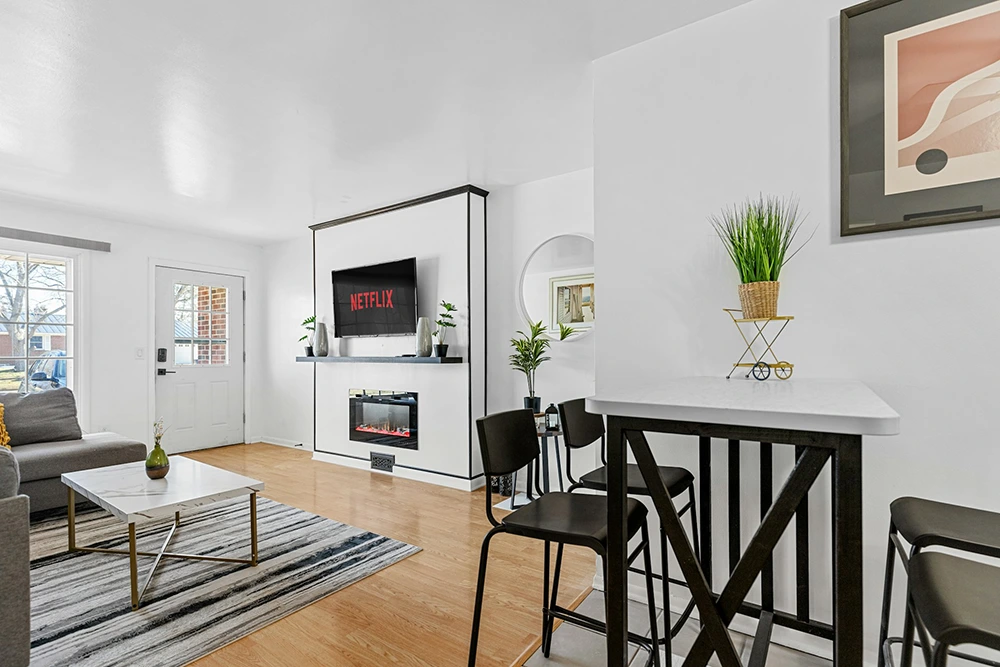
If you plan to rent out your property in Austin, Texas, for short-term stays, understanding the city’s laws and regulations is crucial. The popularity of short-term rentals through platforms like Airbnb and VRBO has surged, but Austin enforces specific laws to regulate these rentals, ensuring guest and resident safety. We’ll explore Austin’s short-term rental laws and what you need to know before listing your property.
A short-term rental in Austin means renting out a residential property for less than 30 consecutive days. This includes listings on platforms like Airbnb, VRBO, and HomeAway.

As a property owner, knowing Austin’s short-term rental laws is vital. Non-compliance can lead to fines, penalties, and possibly losing your rental license. Moreover, a clear understanding of these laws enables you to offer a safe and enjoyable stay for your guests, encouraging positive reviews and repeat business.
In 2016, Austin introduced an ordinance requiring all short-term rentals to obtain a city license and adhere to specific guidelines. This ordinance aims to balance the interests of residents and visitors while preserving Austin’s neighborhood character.
Obtaining a license is essential for legally operating a short-term rental in Austin. The process involves submitting an application, paying a fee, and meeting requirements like being current on taxes and fees, complying with building and safety regulations, having a 24/7 contact for guests, and showing proof of property insurance. All of this information can be found on the city of Austin’s code department website.
Type 1 STRs: These can range from single-family homes to duplexes and multifamily units. They might involve renting out the entire dwelling or just a part, like a bedroom with access to a bathroom. For Type 1 STRs, the city requires that the property is the owner’s primary residence.
Type 2 STRs: This category is designed for non-owner-occupied single-family homes or duplexes, typically located within commercial or mixed-use districts. Type 2 STRs cater to owners who wish to rent out entire dwellings without residing on the premises.
Type 3 STRs: Exclusive to multifamily buildings (three units or more), Type 3 STRs can be owner-occupied or not. However, there’s a cap on the number of licenses issued per building, making the application process competitive.
However, a crucial legal decision on August 1, 2023, challenged the city’s stance on owner-occupied rental prerequisites in residential zones, potentially easing the licensing process for more properties. The court deemed the requirement for homes to be owner-occupied to receive a Type 2 license unconstitutional. As a result, it potentially broadened the scope for both owner-occupied and non-owner-occupied properties to secure licenses. The exact implications of this decision are still unfolding, but it signifies a significant shift towards inclusivity and flexibility in the short term rental market.
One of the key regulations in Austin’s short-term rental ordinance is the occupancy limit. The maximum number of guests allowed in a short term rental is determined by the number of bedrooms in the property. For instance, a one-bedroom property can accommodate up to four guests, whereas a four-bedroom property can host up to 10 guests. Importantly, these limits aim to prevent overcrowding and, consequently, ensure the safety of guests.
To prevent disturbances to neighbors, short-term rentals in Austin must adhere to noise regulations, notably limiting noise levels between the hours of 10pm and 7am. Furthermore, these rentals are required to provide designated parking spaces for guests, who in turn must comply with all neighborhood parking regulations.

All short term rental listings in Austin must display their license number in the listing description. This allows potential guests to verify that the property is legally licensed and compliant with city regulations.
As a short-term rental host, your responsibilities include collecting and remitting hotel occupancy taxes to the city. The city allocates these taxes to fund various services and requires you to collect them from guests and make monthly payments. To facilitate this, owners and managers can utilize the Austin Finance Online website.
In addition to displaying your license number, it’s important to inform guests of any rules and regulations they must follow during their stay. This can include noise regulations, parking restrictions, and any other guidelines set by the city or your homeowners association.
The City of Austin takes the enforcement of short term rental laws seriously. They have a dedicated team that responds to complaints and conducts inspections to ensure compliance. Should they discover a violation, the property owner could face fines and penalties, and in some scenarios, risk losing their rental license.

If you’re feeling overwhelmed by the laws and regulations surrounding short term rentals in Austin, there are resources available to help. Guest Haus Property Management can assist with obtaining a license, managing bookings, and ensuring compliance with city regulations. Additionally, the City of Austin has a dedicated website with information and resources for short term rental owners.
In conclusion, understanding Austin’s short term rental laws is crucial for property owners looking to rent out their property for short term stays. By obtaining a license, adhering to regulations, and providing a safe and enjoyable experience for guests, you can successfully operate a short term rental in Austin. Remember to stay informed and up to date on any changes to the laws, and seek assistance from resources if needed. With the right knowledge and preparation, you can make the most of the short term rental market in Austin.
© 2024 guesthausrentals.com